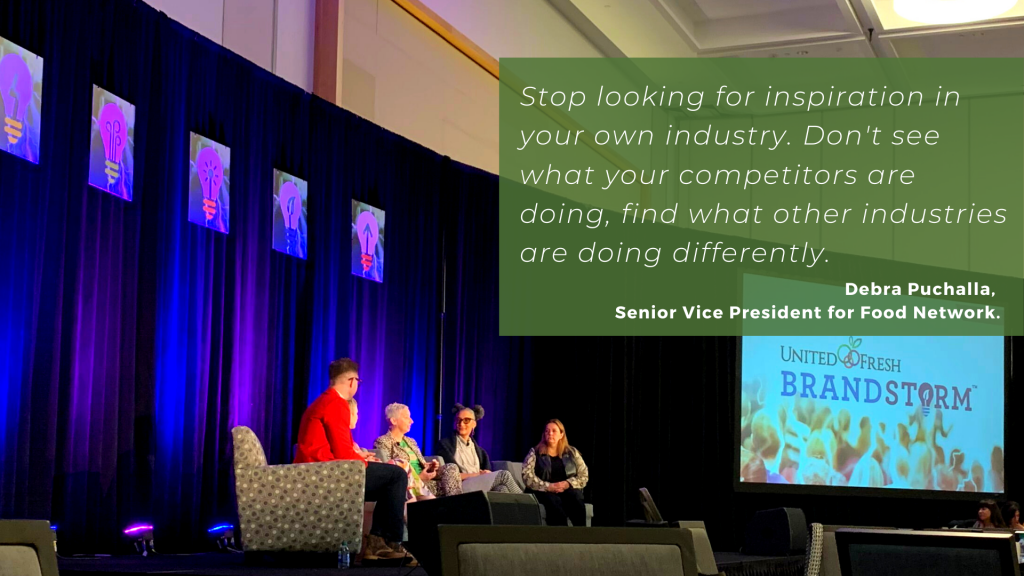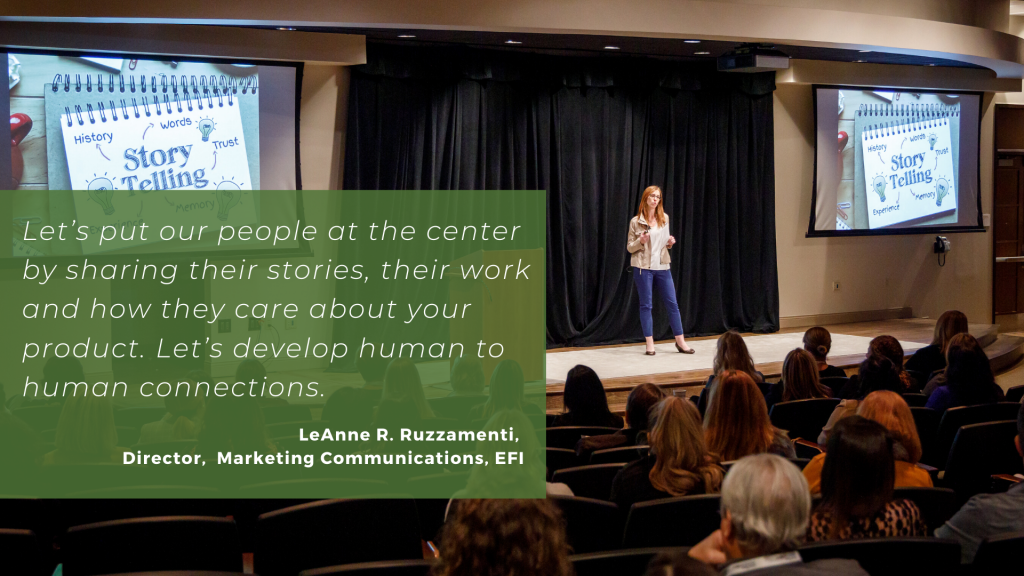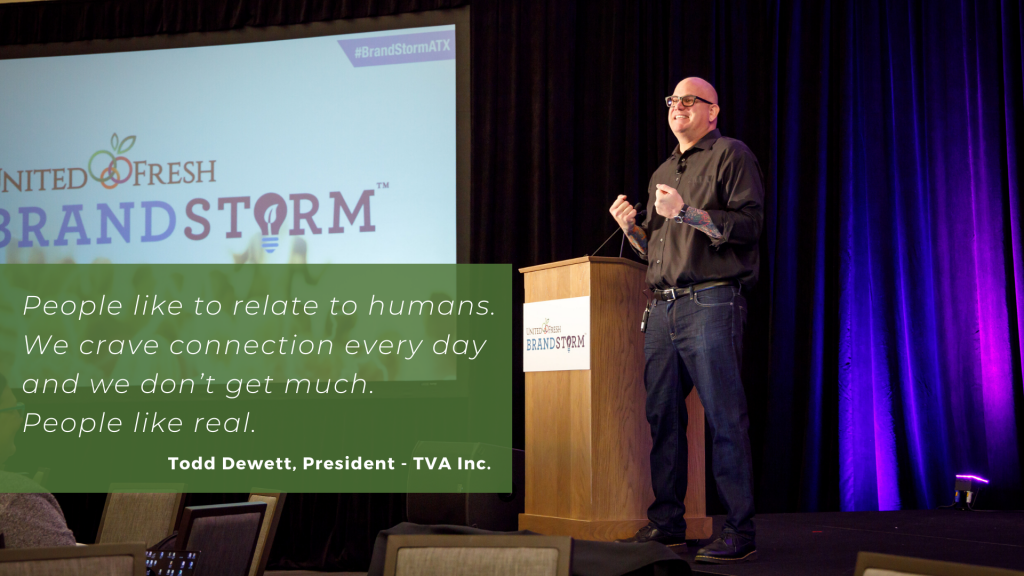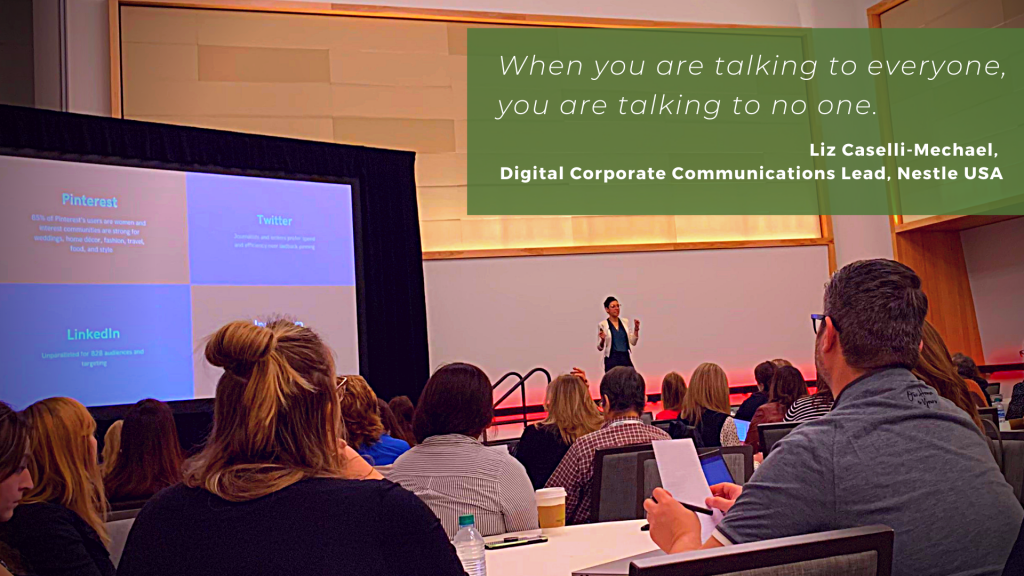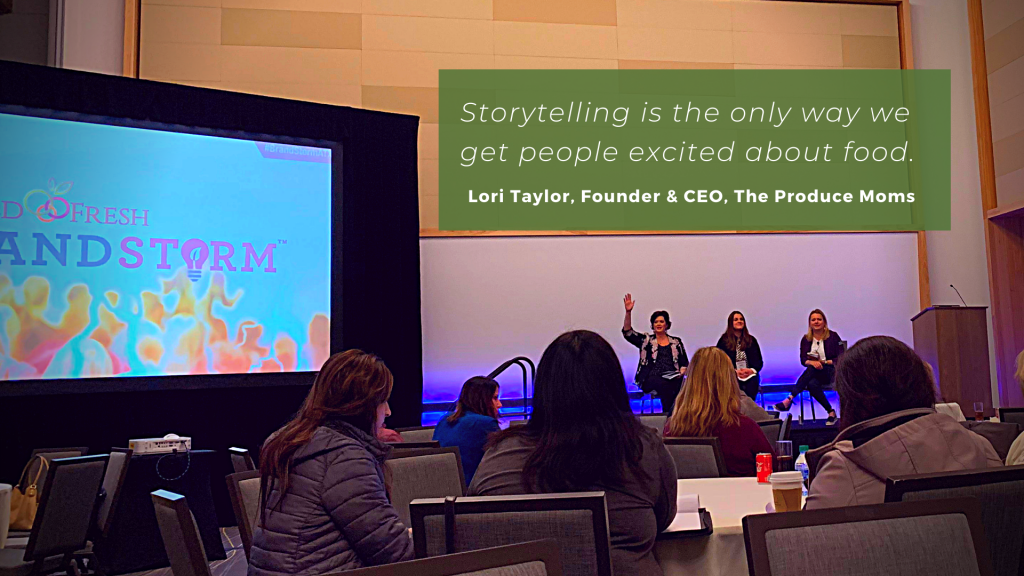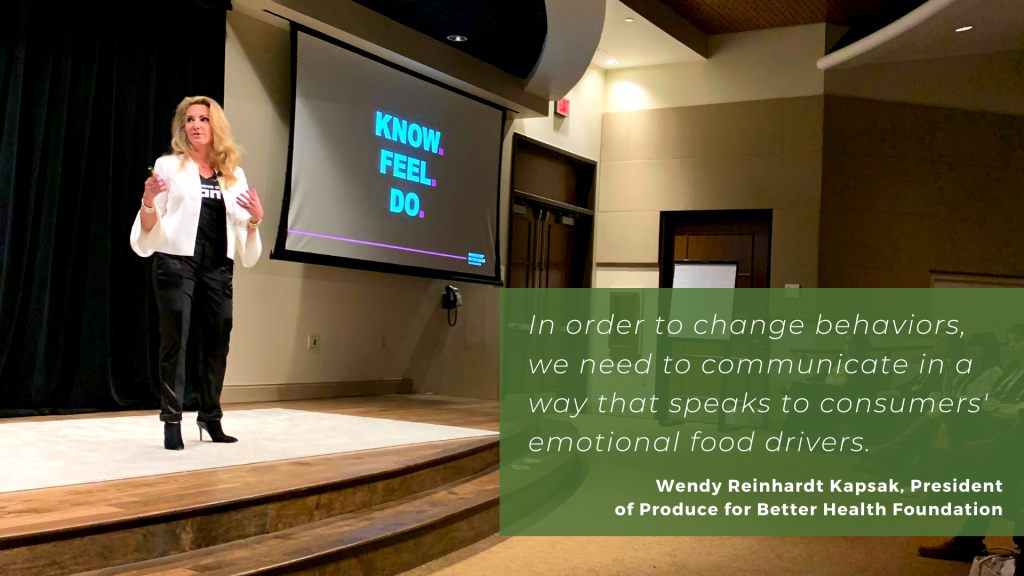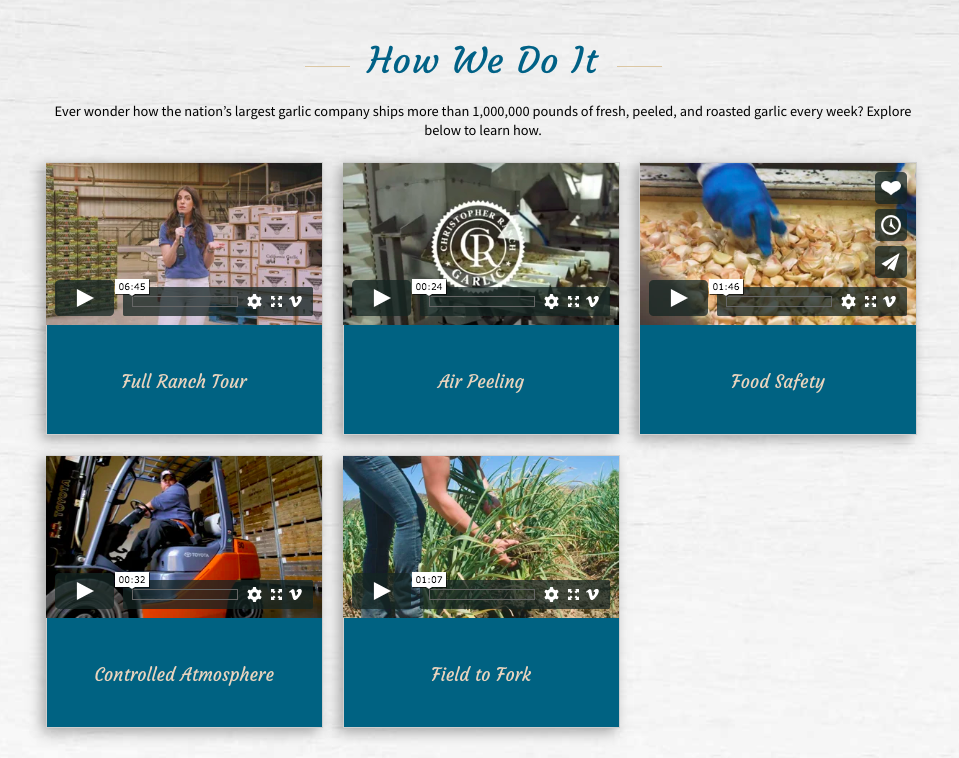United Fresh’s fifth annual BrandStorm™ celebrated in Austin, Texas, focused on cultivating consumers’ trust and elevating transparency among today’s belief-driven buyers.
Here’s a glimpse of what we learned during this year’s conference:
Fruit and vegetables are taking center stage on our plates
A panel composed of leading food media outlets and influencers shared the many ways that fresh fruits and vegetables are taking center stage in dietary patterns. Experts talked about the importance of culture in food, showcasing a company’s story as a way to build stronger connections. They ended with the idea that consumers want to know more about the processes and the people behind their food…noting the idea could make a great new show for the Food Network!
Put your employees at the center; create human connections with worker stories
In fresh produce, people are your most important differentiator, and they are the ones who can tell your most authentic stories. “There are over 5.3 billion recipes online. We can be more differentiative than that. Let’s instead mine for stories that will drive personal connections to our organizations,” said LeAnne Ruzzamenti, Director of Communications for Equitable Food Initiative (EFI).
She explained that to change the global narrative of the produce industry we need to move beyond recipes and stylish photos of pretty plates of food. “Sharing recipes is a hollow marketing message that doesn’t answer consumer demands. Those type of messages don’t create connections, don’t shed light into your organizational values or show you as a purpose-driven business that’s making ethical decisions.”
Brand authenticity starts at the top
People like real and respond to you as a leader when you are living your values, not just talking about them. Author Todd Dewett emphasized being authentic and showing your humanity. “Do the right thing, gain respect – it’s not about making people happy.” said Dewett. “Authenticity is the foundation of innovation and it doesn’t cost a dime.” he added.
Your audience is NOT everyone who eats
Knowing your target consumers is usually the initial step in developing a marketing strategy, and yet brand messages keep getting lost in the social media feed. “Should your company be on TikTok?” asked Nestle USA’s Digital Corporate Communications Lead Liz Caselli-Mechael of a room full of silent marketers.
Marketers must think of the target audience before moving forward with any advertising decision. Before any A/B test about copy or voice, first we need to ask questions about the audience: Where are they on social media? What information do they need from fresh produce companies? What other interests do they have?
Caselli-Mechael stated that to cut through the social media noise and be heard, marketers must rethink typical digital marketing goals (awareness, consideration, purchase, etc.) and reassess the way the company communicates as a brand. “Tell your audience what they want to hear, not what the company wants to promote.”
There’s still a gap in content by produce brands
Podcasting, video and influencer marketing are just a few online media options that haven’t reached the fresh produce industry, and they are some of the best mediums for telling a brand’s story.
The average user spends 88% more time on a website with video. Viewers retain 95% of a message when they watch it in a video compared to 10% when reading it in text. These are outstanding facts that should change any marketer’s mind when it comes to media plans. In spite of this data, a large number of food organizations don’t have a social presence or even a functioning website.
Lori Taylor, Founder & CEO of The Produce Moms, believes that produce brands should be out in front of food trends but are overlooking revolutionary diets instead of chasing them. “The plant-based diet is a great opportunity for food brands. We should be holding on to it instead of letting it pass by.” With more than 10,000 downloads in her repertoire that include conversations with major retail executives from Whole Foods Market and Kroger, The Produce Moms’ founder not only recommends adding podcasting to your digital strategy but also transforming that audio into evergreen content such as blogs on your website.
Brand ambassadors and social creators have also changed the advertising landscape. They influence how people shop. XCart reported that 72% of users make purchasing decisions based on something they saw on Instagram. Authenticity and trust are critical in influencer marketing. Brands need to take a step back and take a risk. “Don’t try to control the voice of your influencers and ambassadors with talking points. You will lose the game of authenticity if you don’t let them share their experience in their own words and to their own audience,” said Caselli-Mechael.
In produce, innovation involves disrupting consumer behavior
Can you elevate fresh produce in the global food narrative? That’s what five speakers were tasked to do in this year’s FRESHx passion pitches. For Jason Stemm, Vice President of Padilla, transforming the fresh produce industry goes beyond redefining the way you promote fruits and vegetables. It’s about developing new products that bring fresh food closer. Stemm talked about Padilla’s innovative way to reach consumers and create healthier choices through convenience.
“We are experiencing a consumption crisis of fresh produce,” said fellow FRESHx passion pitcher Wendy Reinhardt Kapsak, President & CEO of the Produce for Better Health Foundation. Despite hearing about the health and wellness benefits of fruits and vegetables for decades, nearly nine in 10 Americans still don’t eat enough each day. Reinhardt Kapsak wants to change the global food narrative by transforming the way people eat. “We have made little headway in the global consumption of fruits and vegetables, and that’s because collectively we can’t produce change if we are not part of it.”
Regaining consumer and buyer trust with transparency
Transparency has become more than showing where the food comes from and how it is produced; is about building trust through a company’s values. According to the 2020 Edelman Trust Barometer, “Building trust means balancing competence with ethical behavior.” In today’s cancel culture, consumers are becoming more skeptical about brands, calling out individuals and groups accountable for actions perceived to be offensive. In early 2018, Christopher Ranch became the subject of the Netflix docuseries Rotten where the show implicated the family business for importing Chinese garlic and selling it to consumers as American Grown. Ken Christopher, Executive Vice President of Christopher Ranch, LLC spoke about remaining transparent and preparing for a crisis before it happens by proactively telling your story.
He notes that his family, like many in agriculture, tended to keep the good work they did in the community quiet, something they were proud of but not boastful about. They realize now that it’s critical to talk about this work as well as provide complete transparency into their operation through digital and social media.
Encourage a healthy work-life balance
Rebekah Hubbard, Vice President of Operations for Heart Creative shared great tips for managers as she delved into how to lead marketing when you’re working in the trenches. She encouraged supervisors to hold up a mirror to themselves. “Your actions speak louder than words. If you never take personal time off, eat your lunch at your desk, and answer emails at all hours of the day, your employees will assume that is what is expected of them. Even if you tell them otherwise,” she said.
Related articles:
Five Takeaways from United Fresh’s BrandStorm™
How to Market Authentically and Build Trust
Photo Credit: A.E. Landes Photography / United Fresh Produce Association
Written by: Rebecca Castrejon, Digital & Communications Associate for Equitable Food Initiative
Edited by: LeAnne Ruzzamenti, Communications Director, Equitable Food Initiative


